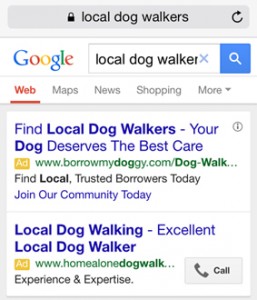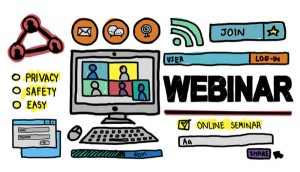
Oh, the employee review.
Everyone’s favorite time of the year… when we feel compelled to force our colleagues to eek out total bullshit answers to boring, random questions that rarely relate directly to the job they perform.
Why do we torture these people? Why do we torture ourselves?! Because once upon a time an HR Manager somewhere said it was so?
But wait. You, my dear are a business owner. You are the queen/king of the land, and frankly, you don’t have time to do anything just “because.”
Naughty Mind Numbing by Nature
Most employee reviews start with a generic review template that has been handed down since the invention of the photo copier.
It asks employees to rank themselves, then their manager to rank them, based on the most generic terms possible.
These forms usually include a big blank space for you to give specific, long-form feedback on each performance area.
Some of them are even brazen enough to ask for ratings on traits like honesty, creativity, and technical skills—like it’s even possible to rank someone on these factors.
I mean, if you’re giving Joe in Accounting a 1 out of 5 in honesty, I’m really concerned for you.
Take Back Control
As crazy as it sounds, the #BlueCrew brought up employee reviews right before the new year.
As much as I hoped they’d just forget, and that we’d roll right along in our happy lives, the team felt it was important.
So, as we typically do, we decided to approach these reviews in our own unique way.
Throw Out The Standard Review Forms
The first thing we did was fire up a Google Doc, share it with the team, and start dumping in the things that really matter to us.
We’re busy folks—we don’t have time for useless existential thinking about our ability to keep our desks neat and tidy.
Making it a group effort allowed everyone to have a bit of ownership and make sure the things that really matter to them are represented.
We ended up with a review that takes into account things like using vacation time and really shutting down outside the office to keep us from burning out.

(I really do care, honestly.)
Our review form also ended up being about half the length of all the templates and standard reviews we’ve come across. That’s because we address issues and annoyances as they happen.
Why wait until review time to bring up problems when you can address them in the moment and move on with life?
Take it to the Team
We’re a small, 5-person team here. There’s no hierarchy, no subordinates, and no managers (except, let’s not forget the fact that I’m the HBIC).
It’s important to me that we’re all accountable to one another. My opinion and perspective on how someone is doing in their job is just that: my opinion. I need my team to be open and honest with each other about their performance too.
So, in addition to their one-on-one review with me, we’ve added a roundtable review to talk about what’s going great (and not so great) with one another.
The Results are In

We wrapped up reviews this week, taking them down to the steps of the old Denton Courthouse (hey, us Internet folk have to get outside sometimes!)
Here’s where we are:
The Review Form is a Living Document
Even with our own review template, we found that some questions were repetitive, some too difficult to answer, some just don’t belong in this format.
So, we’ll be evolving our review form for the rest of our lives together. We’ll never have it just right, but we’ll keep getting closer.
No Surprises
This should go without saying, but I’ve had jobs where that wasn’t the case, so I’m saying it. Employees should know how they’re doing in their jobs at any given time, not just during review period. There’s nothing worse than working for someone who is so closed-off that you have no clue how you stand from one day to the next.
Whether things are going great, or things are going not-so-great, you owe it to your employees to be open and honest with them, always.
No one should be sweating bullets over how their review is going to go, there should be no surprises.
Goals Matter
Discussing performance, particularly performance that can be improved, is fruitless if no change happens after the review. Setting goals and changing procedures are key to making the most of the review.
Put the changes necessary into effect right away. You’re a small business after all, there’s no need to drag your feet.
Peer Pressure Seals the Deal
Adding a peer-review element to the process makes it much harder to let the reviews just slide—my employees held me accountable when I wasn’t looking forward to it, but they held themselves accountable as well.
There’s something about knowing that your peers are going to review you that pushes you to do the same—and put in a lot more effort than if it was just the boss doing the review. I like to think we’ve got a great group dynamic here, but it’s easy to let something that isn’t client work slide a little—or not get the best effort possible.
Of course, I can’t let these reviews slide on their end—as the boss, I have to hold myself to a higher standard. But it encourages my employees to take the process much more seriously, to put more thought into the review of others, and to work hard to both lift up and hold accountable their coworkers.
Or at least, that’s what they tell me.
Even Reviews can be Fun

Despite what could have been a monotonous, soul-crushing process, we ended up having a lot of fun! It was a chance for the whole team to leave the office, go outside, and do something different from the day-to-day.
A change in scenery can really alter the mood—and, as a small business owner, you can do that. You’re not required to keep everything in the office. You can make things fun (we certainly did—note our best attempts at stock photography above!)
And, since there’s always the potential for hurt feelings when we’re holding each other accountable, changing the location, or even going out to do something fun, can help ease the pain.
And in the end, it’s nice to know you’re doing a good job, and, if you’ve got a good team, you can laugh at the shortcomings and think about how to address them.
As a Small Business Owner, You Have the Power to Do it Different and Do it Better
When it comes to things that are “standard practice,” like employee reviews, it’s key to always step back and consider how we can do it better.
You’re not locked into one way of doing things just because that’s, “how it’s always been done.”
You can make a change.
You can choose something different, something better.
Choose efficiency, choose what works, choose better.
Now I want to know about you! What are you doing in your business to be more efficient with your time (while supporting your unique company culture?)
Business & Finance Articles on Business 2 Community(42)








